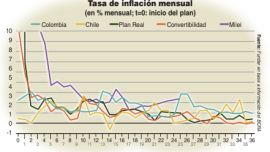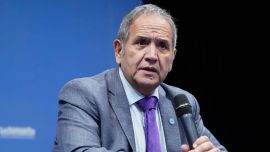Former vice-president Amado Boudou, currently serving a prison sentence on corruption offences, has been released from jail and ordered to serve out his term under house arrest.
A court on Monday granted house arrest to Boudou, who was vice-president during the second presidential term of Cristina Fernández de Kirchner from 2011 to 2015 after having been her economy minister (2009-2011).
Boudou has been serving a 70-month prison sentence for the irregular acquisition of a money-printing company.
"Amado is already home since last night, happy to be with his wife and children in such difficult times," Boudou’s lawyer Alejandro Rúa said on Tuesday, referring to Mexican ex-deputy Mónica García de la Fuente and the twins born to the couple two years ago.
Boudou must still use an electronic bracelet, an appeals court ruled.
The court conceded house arrest on the grounds that "the sentence imposed on Boudou has not exhausted all appeals along with the context of the worldwide sanitary emergency due to the Covid-19 pandemic” which "advises that confinement be softened,” according to the ruling.
Boudou was found guilty in 2018 of graft and malfeasance for using his post as economy minister to buy up via a front man the Ciccone Calcográfica publishing house, historically contracted by the state to print money and documents.
The company held contracts to print Argentine currency as well as material for former president Fernández de Kirchner's election campaign. He was sentenced more than five years in jail.
The sentence was confirmed in 2019 by a federal appeals court but the vice-president's defence went all the way up to the Supreme Court, which has yet to rule, so that the sentence is not considered final.
His legal team alleged during the trial that in reality the printing company was bought by two bankers, therefore requesting that the trial be quashed and their client definitely released from prison.
Last year Boudou was sentenced to a further three years in prison (suspended) for forging the papers of a car he sold in 1992.
In the eyes of the defence, the convictions form part of a campaign of judicial persecution against current vice-president Cristina Kirchner and several of her ministers during the presidency of her successor Mauricio Macri (2015-19).
– TIMES/AFP
related news

The eclipse of traditional faith? The religious shift redefining Argentina and Latin America

Argentina's country risk rating falls below 500 points for first time in 8 years

Argentina scraps film classification regime after 40 years, adopts Hollywood norm





















Comments